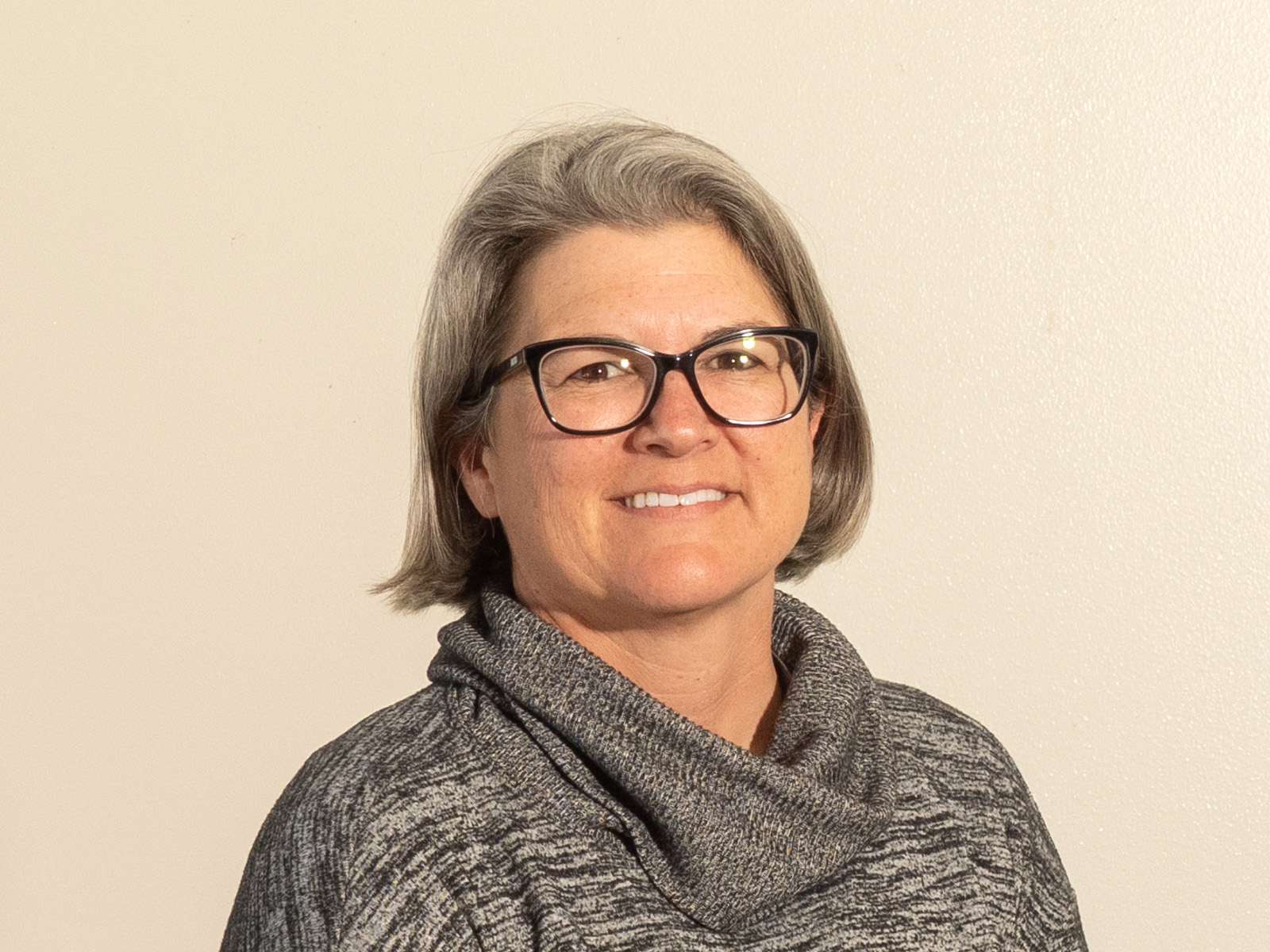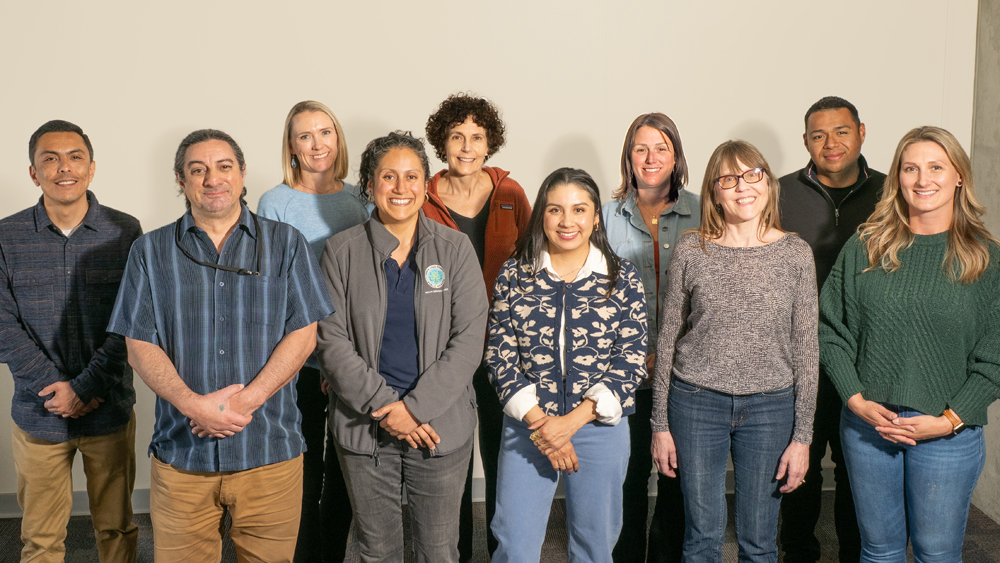The CARE Act Implementation Team/Behavioral Health CARE Team

Back row, left to right: Sven Stafford, Clayton Conrad, Karen Kern
Front row, left to right: Sandy Hughes, Brenda Campbell, Katy Walker
The CARE Act Implementation Team and the Behavioral Health CARE Team is composed of Behavioral Health Deputy Director Karen Kern, Behavioral Health Program Manager Brenda Campbell, Behavioral Health Program Coordinator Clayton Conrad, Health Services Agency Communications Officer Sandra Hughes, Director of Holistic Defense Caitlin Becker, Director of Holistic Defense; Principal Administrative Analyst Sven Stafford, Cannabis Licensing Manager Sam LoForti, and Assistant County Counsel Katy Walker.
Senate Bill 1338 established the Community Assistance, Recovery, and Empowerment (CARE) Act to provide community-based behavioral health services and support to Californians living with untreated schizophrenia spectrum or other psychotic disorders and who meet specific criteria, with the goal of preventing hospitalization, incarceration, or conservatorship. The CARE Act is based on evidence which demonstrates that many people can stabilize, begin healing, and exit homelessness in less restrictive, community-based care settings, and to achieve these results, the CARE Act places individuals on a court-ordered CARE plan for up to 12 months, with the possibility of a 12-month extension.
The County established a CARE Act working group in December 2022, bringing together representatives from Behavioral Health, County Counsel, the Public Defender, the Superior Court, Probation, law enforcement, hospitals, and advocacy groups, with facilitation by the County Administrative Office. In the summer of 2023, the working group formed an implementation team to map processes for each stakeholder, validate workflows, and develop a comprehensive plan for CARE Act compliance. The team developed a CARE Act budget, integrated it into the 2024-25 supplemental budget, and gained valuable insights from pilot counties through presentations and court observations.
From fall 2023 to fall 2024, the team conducted extensive outreach, presenting to community groups, government bodies, and stakeholders, while also establishing a CARE Act webpage and providing training sessions for external partners, including law enforcement and emergency responders. The CARE Court program successfully launched on December 1, 2024, with the first petition received in the program’s first week and the first court proceeding held the following week.
The CARE Act Implementation Team and the Behavioral Health CARE Team showcased exemplary teamwork, innovation and dedication as they addressed a critical state mandate with significant implications for public health, safety, and community well-being.
Kayla Gray

Kayla Gray
In September 2023, the Health Services Agency Behavioral Health Division identified a critical need to update its policies and procedures after emergency operations during the CZU fires, staff turnover, and leadership changes led to disorganized and improperly managed medical records, including abrupt file relocations and loss of institutional knowledge regarding retention and destruction protocols.
Kayla Gray, a Program Coordinator in the Behavioral Health division took the lead on an extensive project to inventory, organize, and transfer over 1,200 boxes of records to an off-site storage facility while simultaneously updating workflows, policies, and staff training. Though initially planned as a 90-day effort, the project extended to a full year due to the sheer volume of unorganized files, missing labels, and outdated processes.
Kayla meticulously reviewed and logged each box of records, often recreating missing lists and reconciling contents with retention protocols, and she organized and relabeled all records to meet regulatory requirements, ensuring compliance with state and federal standards.
Kayla facilitated the proper destruction of records no longer required, enhancing efficiency and regulatory adherence, and developed updated policies, workflows, and a comprehensive training program to ensure future compliance and sustainability of records management practices.
Kayla also engaged and secured a contract with an off-site storage vendor, ensuring the long-term organization and security of medical records, and she successfully oversaw the final implementation of the new system, including staff training and transition processes, ensuring seamless adoption across the division.
Kayla’s exceptional efforts have transformed the Behavioral Health Division’s records management system, ensuring compliance, efficiency, and sustainability for the future.
The Communicable Disease Unit

Back row, Left to right: Ivan Avalos, Diana Thomas, Connie Wainright, Erin Van Dale, Fernando Araiza
Front row, Left to right: Jeff D’Andrea, Deanna Mercado, Veronica Nolasco, Amy Meza, Lauren Tranchita
The Communicable Disease Unit within the Public Health Division of the Health Services Agency is composed of Senior Public Health Investigators Veronica Nolasco and Jeff D’Andrea; Public Health Nurse IIs Cortney Talan, Lauren Tranchita, Diana Thomas, Karyna Linzer, Deanna Mercado, and Connie Wainwright; Public Health Nurse IIIs Viviana Ortiz, Amy Meza, and Erin Van Dale; Administrative Aide Ivan Avalos; Office Assistant III Viviana Ortiz; and Program Coordinator Fernando Araiza.
In early 2024, the Communicable Disease (CD) Unit within the Public Health Division demonstrated exceptional leadership and coordination in addressing two simultaneous public health outbreaks—Shigella and Syphilis—that primarily impacted individuals experiencing homelessness.
The CD Unit identified the Shigella outbreak in February 2024 through proactive investigation of individual cases, enabling swift recognition of the outbreak’s rapid spread, and it was this early recognition of the outbreak that facilitated the prompt implementation of critical control measures, supported by partners such as the Health Centers, Environmental Health, and Emergency Preparedness teams. Collaborative efforts ensured that sanitation guidance and resources were distributed across high-risk settings, including homeless shelters and encampments, contributing to the containment of the Shigella outbreak; and
At the same time, the CD Unit grew suspicious of a potential Syphilis outbreak in the South County area, and, recognizing the potential severity of untreated Syphilis, the CD Unit mobilized resources with assistance from partners such as the Homeless Persons Health Project, Salud Para La Gente, Housing for Health, and the County Syringe Services Program.
The CD Unit, in collaboration with local Emergency Medical Services (EMS), Fire Departments, and law enforcement from the cities of Santa Cruz, Capitola, Scotts Valley, and Watsonville, carried out field-based outreach, education, and testing efforts to combat the Syphilis outbreak; and
These combined efforts reached 141 individuals, tested 127, and identified and treated 28 cases through rapid testing and immediate treatment, making significant strides in reducing the spread of Syphilis in the community.
Both outbreaks unfolded during a period when the County was also grappling with a surge in COVID-19 outbreaks in congregate settings, such as homeless shelters, and the CD Unit’s ability to manage these concurrent public health threats, while maintaining a focus on other critical investigations was a remarkable achievement.